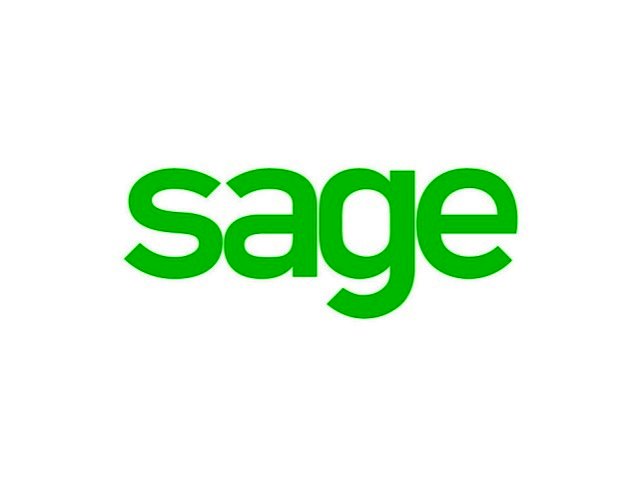Are SMBs in South Africa being left behind?
By Staff Writer 1 April 2022 | Categories: feature articles
NEWS SPONSORED BY DELL E-SERIES 24" MONITORS FROM DCC:
Small and medium businesses (SMBs), which represent two-thirds of global jobs and over half of global GDP, remain resilient and confident in the face of current challenges. They warn of rising costs and the need for more government support and better financing options to weather these conditions over the next 12 months.
Sage, the leader in accounting, financial, HR and payroll technology for small and medium businesses, commissioned the Small Business, Big Opportunity research – a first-ever global study into how SMBs survive and thrive despite current public health, economic and societal challenges, including rising costs of living and the ongoing impact of the pandemic – to look at the confidence of SMBs.
The survey covered over 13 000 businesses in eleven countries worldwide, including more than 1 000 in South Africa, to understand their experience of the COVID-19 pandemic and their outlook for the future.
In South Africa, the research found that:
Rising costs and concerns about inflation are keeping South African businesses up at night, much like the rest of the world
- More than half (51%) of South African businesses are still not operating as they did before the pandemic.
- Some 43% of South African respondents expect rising inflation and cost pressures to persist and worsen in the year ahead, significantly impacting growth prospects.
- Nearly half (48%) expect the inability to operate as before to pose the biggest risk to their success in the next 12 months, compared to 31% of global respondents.
Business confidence remains strong, despite ongoing pandemic pressures
Most South African businesses feel more resilient and better prepared to overcome major barriers now than before the pandemic because of their adaptations over the period, including investment in technology.
- Three quarters (75%) of South African SMBs are confident about the success of their business right now – 10% higher than the global average (65%), while 80% feel confident about their success over the next 12 months compared to 69% globally.
- Optimism is starting to filter through into profitability, with 81% of South African SMBs expecting to be somewhat back to pre-pandemic levels of profitability within the next 12 months. Two thirds (66%) expect their business revenue to increase over the next six months.
- More than half (56%) of South African SMBs surveyed expect to hire more people in 2022. Around 39% saw their workforce shrink in the previous year, but 70% are confident they will be able to meet their staffing needs over the next 12 months.
Government and financial support are crucial to business survival
- South African SMBs identified financing and government support as the most important resources contributing to SMB growth over the next 12 months.
- Some 34% highlighted a lack of government support as a key challenge affecting their business today.
A majority want to seize the opportunity for more sustainable development
- Out of the markets surveyed, SMBs in South Africa were most likely to say they will become more sustainable as a business in the next year (51% versus 28% globally). They expect to make changes such as developing more sustainable products to sell (35%) and reducing waste and recycling materials (34%).
- They named a wide range of benefits that becoming more sustainable could bring to their businesses, most notably attracting customers with more sustainable products and services (46%), creating a better working culture (42%), and boosting employee motivation (40%).
COVID has accelerated technology adoption
· SMBs in South Africa were more likely than SMBs in the other countries surveyed to increase their technology investment in the next year. Seven out of ten (71%) expect to increase investment, compared to a global average of 51%.
· A similar proportion (71%) said the pandemic has permanently increased their reliance on technology.
“SMBs are the backbone of the global economy and supporting them to grow will help create economic equality. Our survey shows incredible resilience by SMBs in South Africa and their commitment to creating employment and wealth for the benefit of their communities. They hold the key to resolving the unemployment crisis and creating much-needed tax revenue to support social spending. Providing the right infrastructure and reducing red tape will unleash their potential,” commented Viresh Harduth, Vice President, Small Business, Sage Africa & Middle East.
On a global scale, the research found that businesses founded during the pandemic report larger than average barriers to success but remain more confident about the growth they can achieve in the upcoming year.
· 64% of businesses founded during the pandemic were by young people (aged 18-34).
· Generation COVID businesses are much more adaptable to COVID-19 restrictions, with less than a third (29%) stating the pandemic negatively impacted their operations in the past 12 months.
· These companies are more confident they will generate revenue growth in the next six months (57%) versus those founded pre-pandemic (48%).
· However, these businesses still feel there are significant barriers to success, with relatively low levels of satisfaction in various areas of their business, including staffing levels (56%), ability to recruit talent (51%) and productivity (58%).
Based on the findings of the survey, SMBs were segmented into four groups based on their experience during the pandemic and their outlook for the future:
· The COVID Generation – 14% of SMBs surveyed. These businesses saw an opportunity to launch during the pandemic. Typically, they are more optimistic than average for the future with big growth plans, despite reporting larger than average success barriers, including recruitment and productivity.
· The Adaptors – 27% of SMBs surveyed. These businesses have faced a wide range of barriers during the pandemic but are the most optimistic group, confident about their staffing levels and their workforce’s digital skills. Adaptors responded to the challenges of the pandemic by increasing investment in technology, focusing on training and developing employees, recruitment, and service innovation. These businesses are often mid-sized, more likely to be male and are the most likely (31%) to have received government funding.
· Resilient – 18% of SMBs surveyed. These businesses are cautious about the year ahead, having faced significant challenges related to the pandemic without making the required changes to adapt in the long term. They are focused on overcoming these challenges rather than on growth, with most expecting no changes in their staffing levels, tech investment and revenue in the near future. Most of these business decision-makers are young (41% in the 18-34 age bracket) and are less likely than average to have received government funding (19%).
· Left Behind – 9% of SMBs surveyed. They are pessimistic about the future viability of their business and are seeking support to continue their operations. These businesses largely expect barriers such as cash flow and liquidity problems and reduced customer demand to be exacerbated in the next year. They are likely to be the smallest businesses globally, with nearly a quarter (24%) operating as sole traders and being less likely than average to have received government funding (19%).
“SMBs have demonstrated incredible resilience throughout the pandemic. But their confidence cannot be mistaken for invincibility. The government must do more to safeguard their prosperity against a backdrop of continued uncertainty and rising costs – or we risk forcing them to choose between protecting people or protecting profits. Overlooking smaller businesses endangers the recovery and thousands of jobs; we all have a role to play in futureproofing their success,” concluded Steve Hare, Sage Group CEO.
Most Read Articles

Have Your Say
What new tech or developments are you most anticipating this year?




